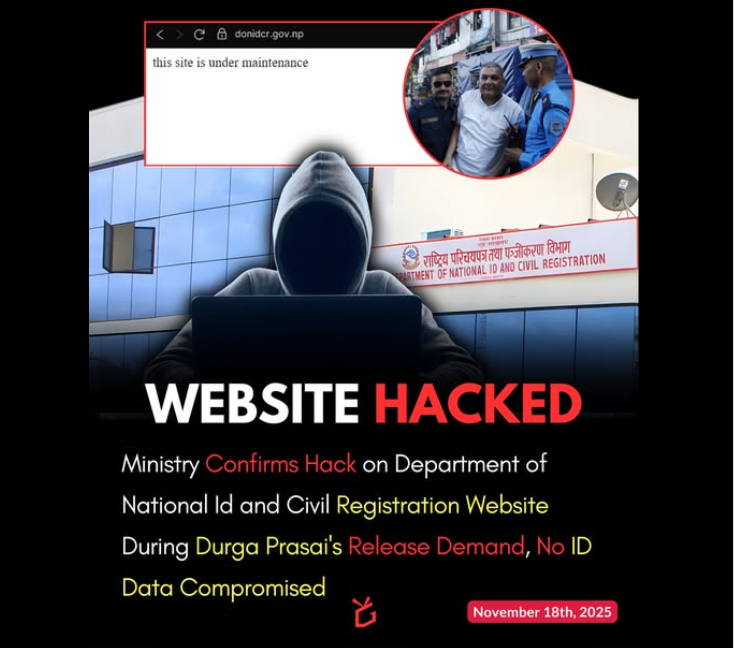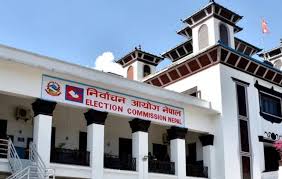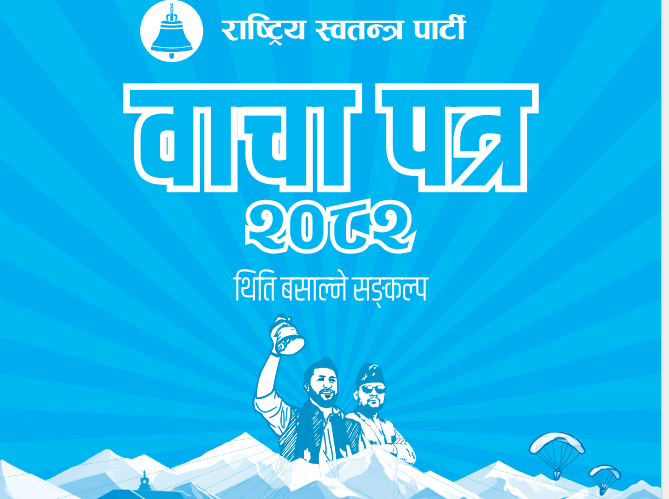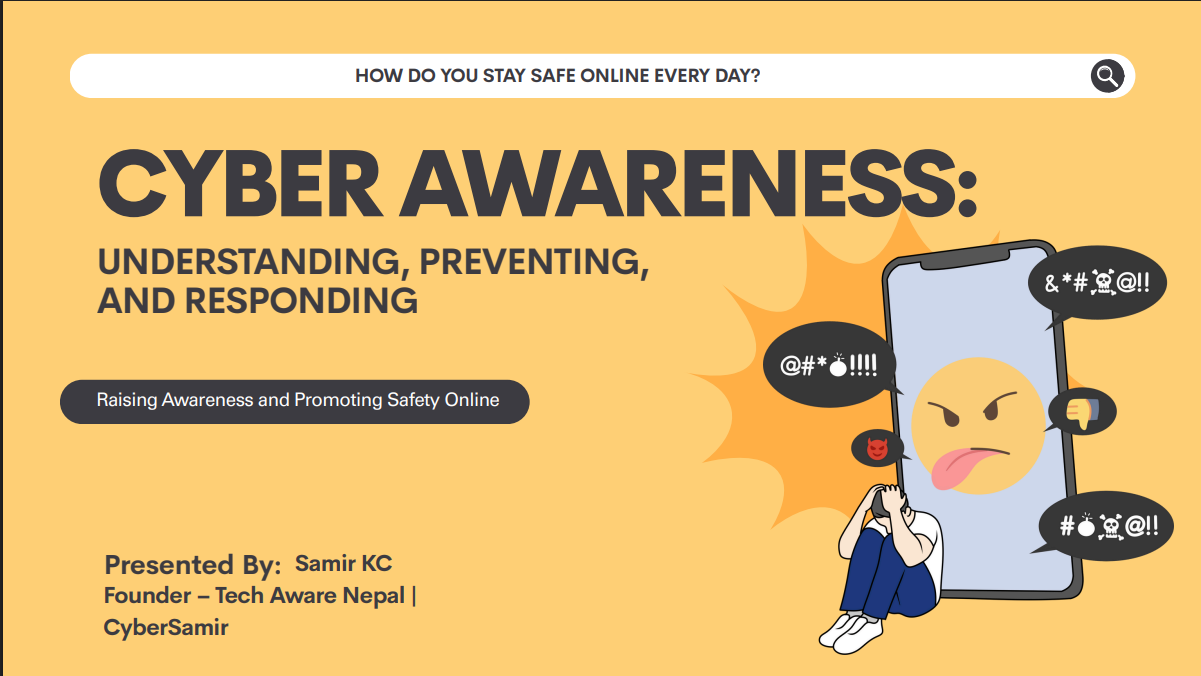
Cyber War Declared? Government Sites Under Attack Following Durga Prasai Arrest
Kathmandu – The digital infrastructure of the Government of Nepal is currently facing one of its most volatile tests in recent history. Following the midnight arrest of medical entrepreneur and activist Durga Prasai on November 18, a hacktivist group identifying itself as “Nepali For Nepal” (NFN) has launched a coordinated cyber offensive, targeting critical national databases and demanding his immediate release.
The National Identity Card Breach: What We Know
The Department of National ID and Civil Registration (DoNIDCR) website has been rendered inaccessible, sparking fears of a massive data leak involving citizens’ biometric and personal information.
- The Hacktivist Claim: Initially, visitors to the site were greeted not by the standard interface, but by a demand for Durga Prasai’s release. The group “Nepali For Nepal” claimed responsibility, stating they had breached the system’s defenses.
- Official Response: Ministry of Home Affairs (MoHA) spokesperson Anand Kafle has officially confirmed that recovery work is underway. In a statement aimed at calming public fear, Kafle asserted that “all data remains safe” and that the disruption was being managed. Department officials further clarified that the public-facing website did not host the core database of National ID details, describing the incident as a surface-level defacement rather than a deep server penetration.
- Current Status: As of now, the website remains offline or unstable while authorities investigate the source of the attack.
The Election Commission Threat: A “600-Page” Deletion?
More alarming than the National ID breach is the specific threat directed at the Election Commission (EC). The “Nepali For Nepal” group has issued a chilling ultimatum to the interim government: Release Durga Prasai within 24 hours, or face further consequences.
- The Claim: The group alleges they have already deleted 600 pages of sensitive data from the Election Commission’s database.
- The Stakes: With the government preparing for upcoming elections (slated for March 2025), the integrity of voter rolls is paramount. If true, a deletion of this magnitude could disenfranchise thousands of voters and cast doubt on the legitimacy of the entire electoral process.
- Immediate Action Required: Cybersecurity experts are urging the EC to not just deny the claims but to perform an immediate, transparent forensic audit to verify if any voter records have been altered or purged.

Analysis: Hacktivism as a Political Weapon
This incident marks a dangerous escalation in Nepal’s political landscape the weaponization of cyber skills for political leverage.
A Big Question to the Government:
“Are you taking urgent cybersecurity measures to confirm this breach and protect the nation’s election data, or are we waiting for a full digital blackout?”
The government’s response so far has been reactive. While spokesperson Anand Kafle’s assurance is standard protocol, the technical community remains skeptical. Without independent audits and a robust National Cybersecurity Center (which has been in ‘planning’ for years), Nepal’s critical infrastructure remains a sitting duck for anyone with a laptop and a cause.
Conclusion: A Dangerous Precedent
Whether you support Durga Prasai or oppose him, the method of protest holding national data hostage sets a precarious precedent. Today it is for a political arrest; tomorrow it could be for financial gain or foreign interference.
Tech Aware Nepal Verdict: The government must immediately secure the GIDC (Government Integrated Data Centre) and treat this not just as IT maintenance, but as a national security emergency.
#NepalCyberSecurity #WebsiteHacked #NationalRegistrationDepartment #DurgaPrasai #NepaliForNepal #CyberWarNepal #ElectionIntegrity #DataSecurityNepal #TechAwareNepal #CyberThreatAlert






